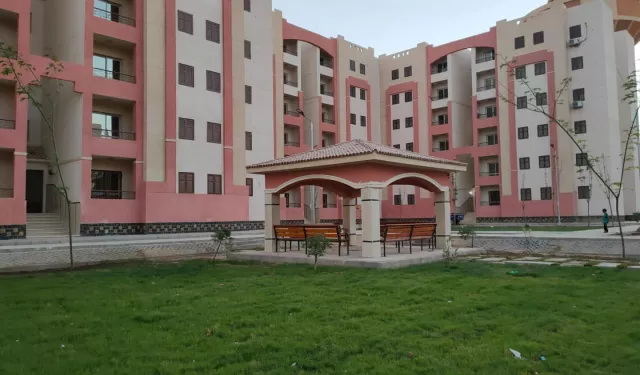Egypt’s Housing Ministry will begin accepting applications on Oct. 1 for housing units offered as alternatives to properties rented under the “old rent” system.
The ministry will apply several regulations from the subsidized social housing program to the alternative housing project, but will exempt applicants from minimum income and age requirements, a senior ministry source told Al Manassa.
According to the source, applicants must reside in the rented unit and sign a pledge to vacate it upon receiving the alternative, and must not have previously obtained subsidized housing from the ministry.
Priority will be given to low-income households, with options for subsidized rent or ownership. Seniors, widows, divorcees, and veterans will also be prioritized, particularly in high-demand areas like Cairo, the source added.
Housing Minister Sherif El-Sherbiny announced on Tuesday that applications will be open for three months via an online platform or through post offices.
Earlier this month, President Abdel Fattah El-Sisi ratified Law No. 164 of 2025, amending regulations governing old rent contracts. The law sets a seven-year transitional period before mandatory eviction, while commercial and administrative tenants have five years. The law also allows for early eviction in cases such as prolonged vacancy or tenant ownership of a similar usable unit.
Tenants must vacate the property at the end of this period, while the government is required to provide alternative housing to the original tenant and their spouse at least one year before the deadline.
For decades, Egypt's “old rent” system was a legal framework designed to protect tenants. Instituted during periods of war and economic crisis, it capped rent at a fixed rate and made eviction nearly impossible. This created a dual housing market, where millions of tenants and their descendants lived in units with rents frozen far below market value.
This system, however, also created years of legal and social conflict. Landlords argued the fixed, non-market rents violated their property rights, while tenants relied on the law for housing security.
In a statement today, the ministry said its Social Housing and Mortgage Finance Support Fund will process applications, compile a tenant database, rank applicants by priority, and determine the number of units needed for eligible categories within six years of the law’s enactment.
